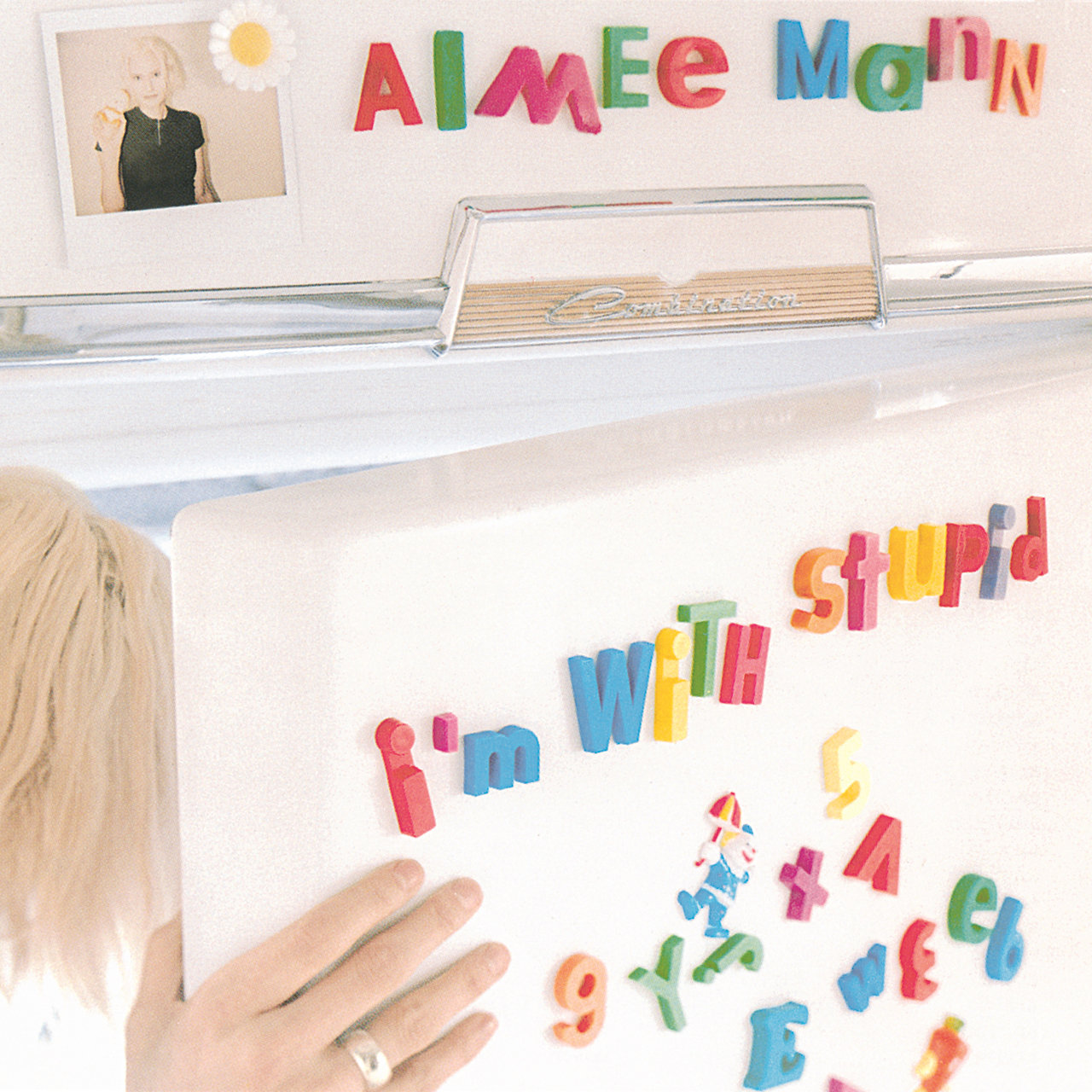Aimee Mann's 'I'm With Stupid' Offers Up A Set Of Thoughtful Observations
From the archives: Not since Moby Grape has so much talent been victim to dumb circumstance
(This review originally appeared in Issue 7, Spring 1996.)
Not since Moby Grape has so much talent been victim to dumb circumstance. Mann hit it big out of the gate with ‘Til Tuesday’s 1984 hit “Voices Carry.” You’d think two gold records would vindicate her pop musical instincts, but when Mann begin edging away from the drum machine/synth rut she’d dug for herself, towards folkier, acoustic guitar-based music, her label resisted, ultimately killing the group’s third and last record for not being “commercial.”
Too many acoustic guitars was the problem. Problem was, Mann’s stifled musical instincts were on the money: Tracy Chapman’s folky debut was released shortly thereafter, and did sell millions. Mann’s label wasn't buying, and wasn’t letting her go elsewhere. After a three-year impasse, it let her go.
Months of negotiating with another label almost led to a deal, but that broke down and finally, financed by her manager, a finished album fabricated from the four-year wreckage was assembled and released as Whatever on Imago (72787-21017-2), which we recommended earlier this year.
Despite poor distribution and promotion, the album sold a respectable 130,000 or so copies. Mann went into the studio to record the follow up, only to watch Imago collapse before it could be released. Yikes! Bad karma. But there’s a happy ending: DGC stepped in and reissued Whatever followed by this new gem.
The title is, of course, what was written on one of the most popular t-shirts of the 70s, which is appropriate since the material on this melodic disc appropriates and builds on some of the most popular musical ideas of that decade.
Mann comes off here as a happy blend of Elvis Costello’s impeccable pop songwriting and Chryssie Hynde’s blunt-edged femininity. Ah yes, I’m pigeon-holing again, but that wraps it up in a neat little package.
I can’t really explain why, but without knowing that Mann has spent the better part of the past two decades in Boston, it’s written all over these tunes. You can feel the long shadows of the low New England sun spreading thoughtful melancholy throughout the disc. While Boston’s WBCN was a sad, pale shadow of its former self last time I listened, Mann clearly has been influenced by the once intelligent and eclectic programming of that beantown institution.
You’ll hear the Beatles, Costello, Pretenders, Kinks and many other 60s and 70s celebrities oozing from Mann’s musical pores, but never in obvious and intrusive ways. Instead, what shows is the residue of her admiration for their songwriting craft as she applies their musical inspiration to her work.
In place of so much 90s smartass posing passing as substance (Elastica, Garbage, etc), Mann offers up a set of thoughtful observations attached to the kind of melodic constructions you might have thought died with the last decade. And she shoots them your way straight from the hip—close to the mic and undiluted by reverb or studio processing.
Tell you what: go right to track eight—”Par For the Course”—and see what you feel as that song’s sad, grand melody plays out under fatalistic lyrics about love that always seems out of reach. That’ll soften you up for the rest of the set as she explores how people behave before, during and after relationships.
Mann’s multi-talented musical collaborator Jon Brion provides outstanding instrumental and arranging support throughout this open-spaced guitar drenched set, changing textures and tonalities to suit the moods Mann sets with her melodies and lyrics.
Mann claims to have been influenced by the stripped down production on Liz Phair’s Exile In Guyville and Beck’s (where’s he?) Mellow Gold and while the arrangements are clear headed and organized. they’re not lacking in textural complexity. Less is clearly more, and more difficult, as Brion cleverly shifts colors and rhythms within tunes, in ways which add to Mann’s intentions instead of distracting from them.
While the instruments are cleanly and naturally recorded, and—with the exception of the drums—refreshingly free of hard edges and brightness, they’re spread fairly wide left/right in the style of decades past, leaving Mann’s larger than life voice to occupy center stage.
Mann’s closely miked voice sometimes has an annoying thickness/compression about it, which is somewhat distracting. Nonetheless, after some getting used to, the dry organized sound of this production is as cleanly intentioned as the songwriting. It may be just the beginning of 1996, but in the end, this will be on my best of the year list, guaranteed!









































.png)








